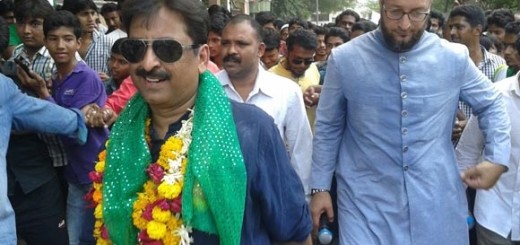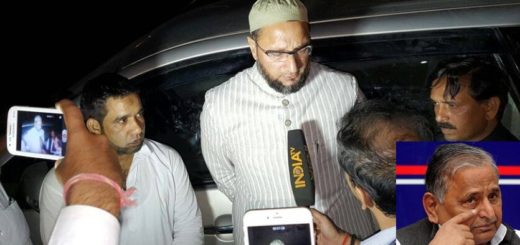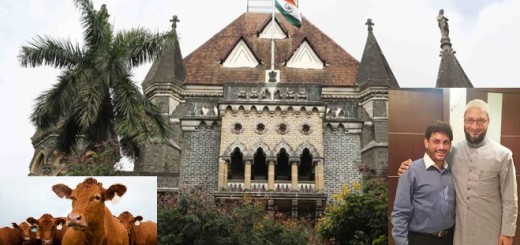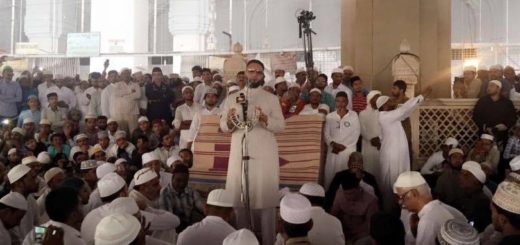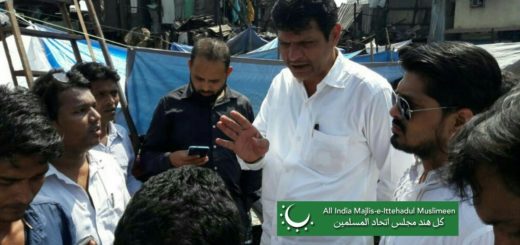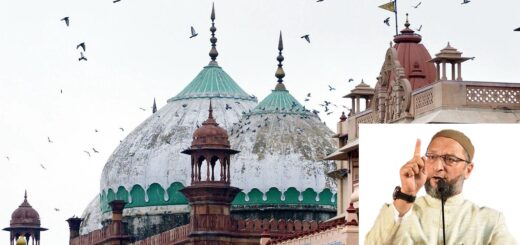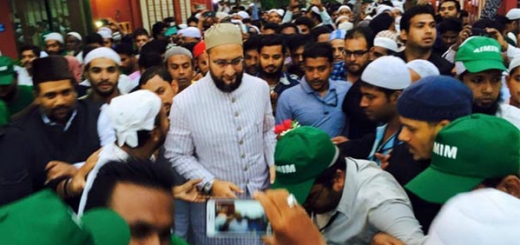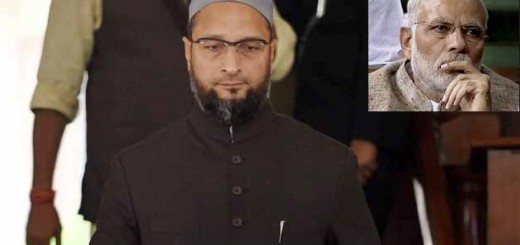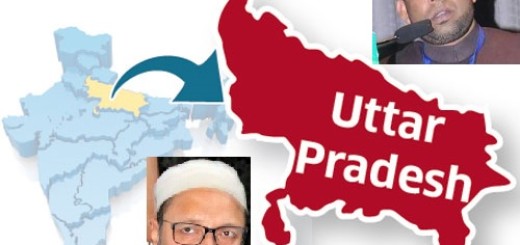The All India Majlis Ittehad ul Muslimeen (AIMIM) is a political party dedicated to protect and advance the rights of Muslims, Dalits, BCs, Minorities and all other underprivileged communities in India. It bears true faith and allegiance to the Constitution of India. It strongly believes in the nation’s secular democracy and strives to protect and enhance its quality by effective representation from local municipal councils to the parliament.
The party has its roots in the efforts of Hyderabadi Muslims, in the late 1920s, who had come together to unite the community on a common platform. Their main objective was to promote the socio-economic and educational development of Muslims. The organization in its first year of inception was known as Majlis Ittehad Bain al Muslimeen and later on as Majlis Ittehad ul Muslimeen. In this phase, Nawab Bahadur Yar Jung was its tallest leader whose dedication, sincerity, and skill made the organization reach new heights in a short period of time. He served as its president until his untimely death, under mysterious circumstances, in 1944. The organization thereafter went through an era of upheaval in the backdrop of decolonisation, partition of the Indian sub-continent, and the subsequent police action in Hyderabad of 1948. The Majlis was dissolved in 1949 due to the prevailing political situation. There was a widespread sense of fear and despair among the Muslims of Hyderabad who had just witnessed the massacres and lootings of the Police Action. Their economic and social base was crushed through a policy of retrenchment, forcible retirements, illegal occupation of mosques & awqaf propeties, introduction of land ceilings, etc. The Muslim community at that time had no credible leadership to call of their own and their representation in the legislatures was next to nil.
After almost a decade of inactivity, the Majlis was revived in 1958 by Maulwi Abdul Wahed Owaisi, a notable lawyer and graduate of the famous Jamia Nizamia, who was earlier jailed for ten months for his courageous political activities in defending the rights of the people. The party was now called the All India Majlis Ittehad ul Muslimeen (AIMIM).
Undeterred by the prevailing atmosphere of fear & misery, Abdul Wahid Owaisi took upon the onerous task of organising the community. His message of hope soon caught the imagination of the masses who found a new leader in their midst who was not afraid of taking on the might of the powers of the day. Thousands of people began attending his meetings and he was invited to speak on other platforms as well. He proved himself to be an articulate spokesperson of Indian Muslim demands. He quoted articles 14 to 25 of the Constitution of India to stress that the rights of the people could only be protected through political participation. He called for a proportionate share of Muslims in government employment and the creation of a fund of Rs.20 crores for their development.
The AIMIM began its electoral debut in 1959 when it contested and won two municipal by-elections in the city of Hyderabad. The candidates won with huge margins of 50% and 65%, respectively. The other leading contenders, backed by the Congress party, nearly lost their deposits. In the 1960 municipal elections in Hyderabad, the AIMIM contested 30 of 66 seats and won a spectacular 19. Since then there was no looking back and the party grew from strength to strength. Maulwi Abdul Wahed Owaisi’s main contribution was integrating a disheartened Muslim community into India’s democratic framework and political processes. Through his tireless two decade long judicial battle, he was able to restore the Darus Salam, the headquarter of the party, back to the Majlis. He was adoringly conferred the title of ‘Fakhr-e-Millat’ by the community.
In 2008, the central government initiated the ‘Multi-sectoral Development Programme’ under which the government has sanctioned Rs.3,780 crore for improving socio-economic parameters of the minorities.
Maulwi Abdul Wahed Owaisi was ably assisted in his work by his son Sultan Salahuddin Owaisi, who succeeded him as the party president after his demise in 1975. He began his political career at the young age of twenty -four and far exceeded the expectations of anyone. Facing hostile powerful parties he never wavered in his goal of getting Muslims their enshrined rights. His election to the Andhra Pradesh legislative assembly in 1978 further increased the articulation of Muslim issues and interests. More importantly the youth began to look at him as a role model and their belief in the Indian democracy was solidified.
In the legislative assembly, he raised issues which have long been ignored by the so-called mainstream parties including the socio-economic decline of the Muslims, restoration of awqaf properties, lack of schools and other infrastructure in Muslim dominated areas, illegal occupation of mosques, ex-servicemen’s pension and housing allotments, etc. His electoral success earned him the reputation as a ‘giant killer’ who had defeated tough competition. Through deft political manoeuvring, he was able to force the governments of the day in redressing several legitimate grievances of the community. Sultan Salahuddin Owaisi raised the national prominence of AIMIM by actively advocating the Muslim issues throughout the length and breadth of the country. In the critical period of 80s and 90s he spearheaded and/or participated in a number of national organizations and movements including:
The Aligarh Action Committee
The Babri Masjid Action Committee
All Indian Muslim Personal Law Board
Through these national platforms, Sultan Salahuddin Owaisi effectively put forward the Muslim demands. His 1984 victory from the Hyderabad parliamentary seat further solidified his stature as a towering Muslim leader of the country.
He was an institution builder due to whose efforts the Deccan group of educational institutions, the Darussalaam Cooperative Bank, and the numerous schools, hospitals, etc. emerged throughout the city. The fact that thousands of Muslim youth have graduated from these institutions is a living testimony to Sultan Salahuddin Owaisi’s wisdom and foresight. He was hailed as the ‘Salar-e-Millat’ by the masses.


